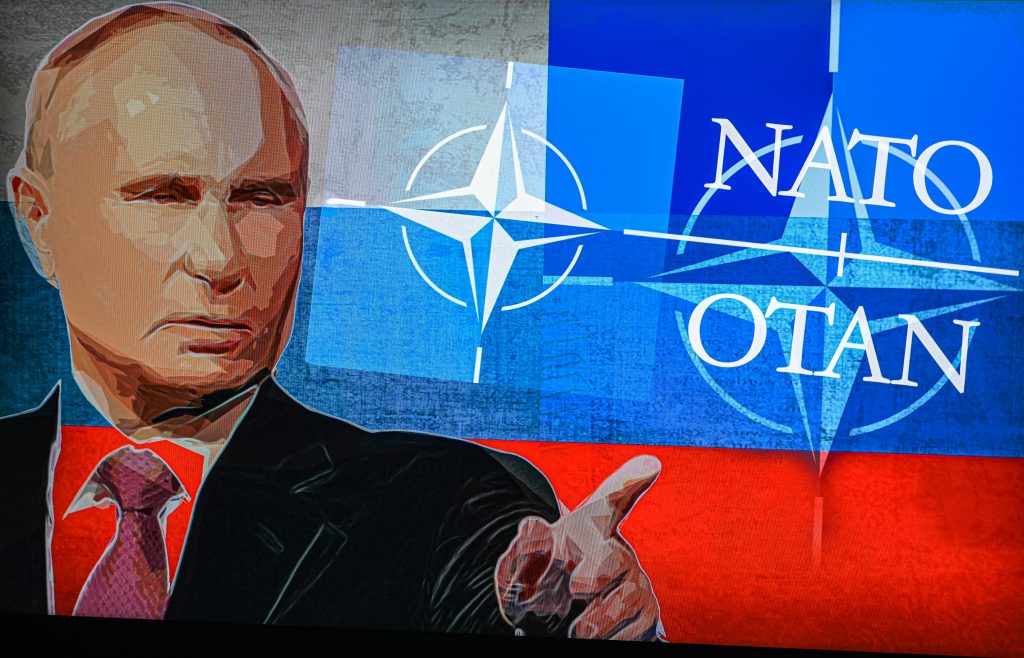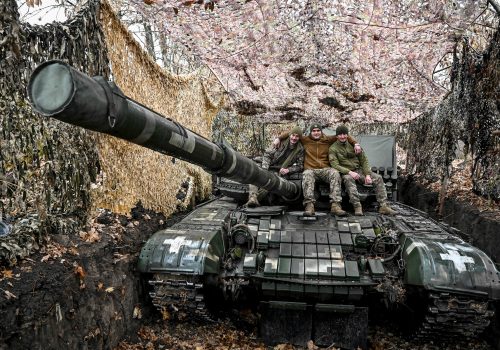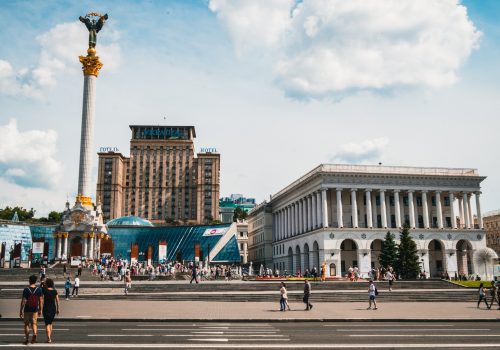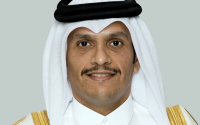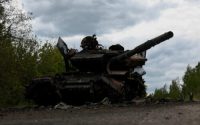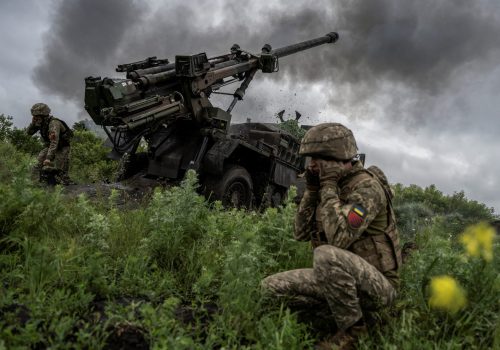
Putin debunks his own propaganda by disarming Russia’s NATO borders
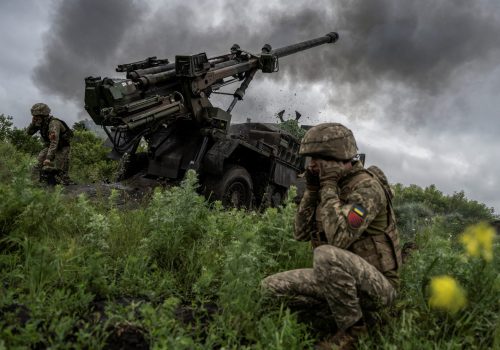
For the past twenty-one months, Vladimir Putin has consistently blamed NATO for provoking the invasion of Ukraine. According to the Kremlin dictator, years of NATO expansion posed an escalating security threat to Russia that eventually left the country with no choice but to defend itself. This NATO narrative has proven far more persuasive among international audiences than Russia’s more outlandish propaganda about “Ukrainian Nazis” and “Western Satanists.” However, it is now being debunked by Russia’s own actions. From Norway in the Arctic north to Kaliningrad in the west, Russia is making a mockery of Putin’s claims by dramatically reducing its military presence along the country’s borders with the NATO Alliance. If Putin genuinely believed NATO posed a threat to Russia, would he voluntarily disarm his entire front line?
This rather obvious flaw in the Kremlin’s logic was thrust into the spotlight on November 26 when Britain’s Ministry of Defense reported that Russia had likely withdrawn vital air defense systems from its Baltic Sea enclave of Kaliningrad to cover mounting losses in Ukraine. Many saw this as a particularly significant development as Kaliningrad is Russia’s most westerly outpost and is bordered on three sides by NATO member states. If Russian leaders were remotely serious about the possibility of a military confrontation with NATO, Kaliningrad is the last place they would want to leave undefended.
Stay updated
As the world watches the Russian invasion of Ukraine unfold, UkraineAlert delivers the best Atlantic Council expert insight and analysis on Ukraine twice a week directly to your inbox.
The weakening of Kaliningrad’s air defenses is the latest in a series of steps that have revealed the reality behind Moscow’s frequent anti-NATO rhetoric. The first major indication that Russia was being less than honest about its NATO fears came in May 2022, when Sweden and Finland announced plans to abandon decades of neutrality and join the Alliance. Just a few months earlier, the Kremlin had paraded its NATO grievances in a bid to justify the bloodiest European invasion since World War II. In stark contrast, Russia now responded to the news from Stockholm and Helsinki with a shrug.
The complete lack of concern on display in Moscow was all the more remarkable given the fact that Finnish NATO accession would more than double Russia’s existing border with the Alliance, while Swedish membership would transform the Baltic Sea into a NATO lake. Nevertheless, Putin insisted Russia had “no problem” with this dramatic transformation of the geopolitical landscape in Northern Europe. He actively sought to downplay the issue, declining even to deploy the dark arts of Russian hybrid warfare or otherwise attempt to interfere in the accession process.
The Kremlin response to NATO’s recent Nordic expansion has extended beyond mere indifference. In the eighteen months since Finland’s announcement of impending NATO membership, Moscow has actively demilitarized the Finnish frontier and withdrawn the bulk of its troops away from the border zone for redeployment to the killing fields of Ukraine. Speaking in August 2023, Finnish Foreign Minister Elina Valtonen confirmed that the border area was now “pretty empty” of Russian troops. “If we were a threat, they would certainly not have moved their troops away, even in a situation where they are engaged somewhere else,” she noted.
A similar process has been underway since February 2022 on Russia’s nearby border with NATO member Norway. Norwegian army chief General Eirik Kristoffersen revealed in September 2023 that Russia had withdrawn approximately 80% of its troops from the border zone. “Vladimir Putin knows very well that NATO is not a threat against Russia,” commented Kristoffersen. “If he believed we were threatening Russia, he couldn’t have moved all his troops to Ukraine.”
Eurasia Center events

Putin’s readiness to demilitarize his country’s borders with neighboring NATO members is damning evidence that the decision to invade Ukraine had nothing to do with an alleged NATO threat to Russia itself. This does not mean his attacks on the Alliance are entirely insincere, of course. The vitriol Putin frequently displays toward NATO is real enough, but it does not reflect any legitimate security concerns. Instead, Putin resents NATO because it thwarts his revanchist agenda and prevents Russia from bullying its neighbors in the traditional manner. In other words, NATO presents no danger whatsoever to Russian national security, but it does pose a very serious threat to Russian imperialism.
This has long been apparent to the countries of Central and Eastern Europe, who clamored to join NATO following the fall of the USSR precisely because they sought protection against what was widely seen as the inevitable revival of Russian aggression. Indeed, while Putin equates NATO enlargement with Western expansionism, the post-1991 growth of the Alliance was in fact almost exclusively driven by fear of Russia among the many countries queuing up to join. Their concerns were shaped by decades and in some cases centuries of brutal subjugation at the hands of the Russian Empire in its Tsarist and Soviet forms. If Russians want somebody to blame for the current NATO presence on their doorstep, they would be well advised to look in the mirror.
The full-scale invasion of Ukraine has now confirmed that these earlier fears of resurgent Russian imperialism were more than justified. Putin himself has openly compared the current invasion to Russian Tsar Peter the Great’s eighteenth century wars of imperial conquest, and has referred to occupied Ukrainian regions as “historical Russian lands.” He routinely denies Ukraine’s right to exist, while insisting Ukrainians are Russians (“one people”). Meanwhile, incitement to genocide has become completely normalized on Russian state television, with Russian soldiers in Ukraine acting on this genocidal rhetoric. The entire NATO narrative has served as a convenient smokescreen for what is a classic campaign of colonial conquest to destroy independent Ukraine.
The Kremlin knows very well that it has nothing to fear from NATO, and is evidently comfortable leaving its borders with the Alliance unguarded. Despite his anti-NATO posturing, Putin is actually motivated by a rising sense of alarm over the emergence of a democratic Ukraine, which he sees as an existential threat to his own authoritarian regime and a hated symbol of Russia’s post-1991 retreat from empire. As Ukraine has gradually slipped further and further away from the Kremlin orbit during Putin’s reign, his responses have become increasingly extreme, evolving from political interference in the 2000s to escalating military aggression since 2014. We have now reached the stage of open genocide.
With the invasion of Ukraine set to enter a third year, too many Western commentators and politicians are still laboring under the delusion that some kind of compromise with the Kremlin remains possible. This assumes the invasion of Ukraine is a conventional war with limited geopolitical objectives, which is clearly not the case. Instead, Putin is a messianic leader convinced of his own historic mission, who has staked everything on the destruction of the Ukrainian state and the reversal of Russia’s Cold War defeat. By pointing the finger of blame at NATO, Putin has sought to distract attention from this chilling reality, but a brief look at Russia’s recently demilitarized NATO borders should be enough to dismiss such claims.
Peter Dickinson is editor of the Atlantic Council’s UkraineAlert service.
Further reading
The views expressed in UkraineAlert are solely those of the authors and do not necessarily reflect the views of the Atlantic Council, its staff, or its supporters.

The Eurasia Center’s mission is to enhance transatlantic cooperation in promoting stability, democratic values and prosperity in Eurasia, from Eastern Europe and Turkey in the West to the Caucasus, Russia and Central Asia in the East.
Follow us on social media
and support our work
Image: Vladimir Putin seen on screen with NATO double exposure logo displayed on Mobile, on 26 March 2023, in Brussels, Belgium. (Photo Illustration by Jonathan Raa/NurPhoto)
